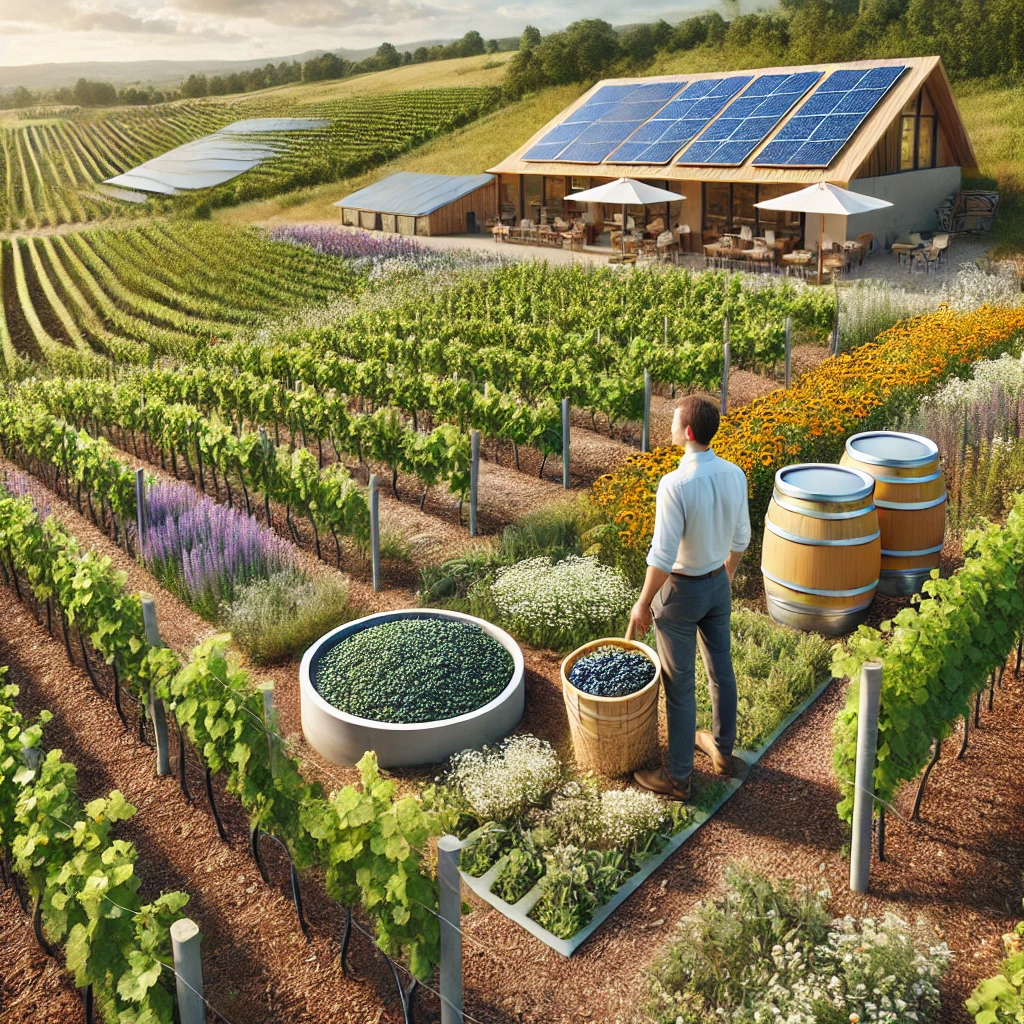Why Sustainable Vineyards Are the Future of Winemaking

Introduction:
As climate change continues to impact agriculture, the wine industry is taking bold steps toward sustainability. Modern vineyards are adopting eco-friendly practices that not only protect the environment but also enhance the quality of their wines. Here’s how sustainable vineyards are paving the way for a greener future.
1. Preserving Soil Health with Cover Crops
Sustainable vineyards plant cover crops like clover and wildflowers between rows of vines. These plants prevent soil erosion, improve water retention, and attract beneficial insects that naturally control pests.
2. Harvesting Rainwater for Irrigation
Rainwater harvesting systems are an efficient way for vineyards to conserve water. Collected rainwater is used to irrigate the vines, reducing the reliance on local water sources and ensuring sustainable water use during dry seasons.
3. Renewable Energy Integration
Solar panels and wind turbines are now common sights in sustainable vineyards. These energy sources power operations like fermentation and refrigeration, reducing carbon footprints significantly.
4. The Role of Natural Composting
Organic waste, including grape skins and stems, is composted and returned to the soil as natural fertilizer. This practice not only eliminates waste but also enriches the soil, creating a thriving ecosystem for the vines.
5. Commitment to Eco-Certifications
Many vineyards are earning certifications such as Organic, Biodynamic, or Carbon Neutral. These designations highlight their dedication to sustainable practices and offer transparency to eco-conscious consumers.
Conclusion:
Sustainable vineyards represent a shift toward responsible winemaking that benefits the environment, winemakers, and wine lovers alike. By supporting these vineyards, you’re not only enjoying exceptional wines but also contributing to a healthier planet. Let’s raise a glass to sustainability in every sip!

This is the heading
Lorem ipsum dolor sit amet, consectetur adipiscing elit. Ut elit tellus, luctus nec ullamcorper mattis, pulvinar dapibus leo.
